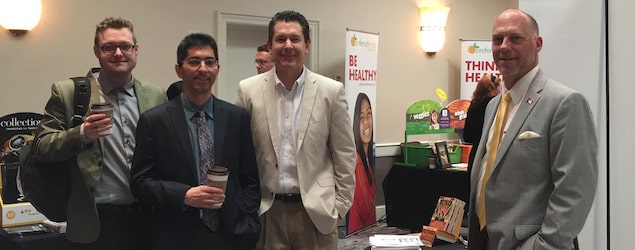Educational Freedom and Charter Schools: A Report from NC Alliance for Public Charter Schools’ 2016 Charter School Conference

On March 10, 2016, Onkar Ghate, senior fellow, and Carl Svanberg, research associate, spoke on the meaning and value of educational freedom at the North Carolina Alliance for Public Charter Schools’ 2016 Charter School Conference in Charlotte, NC.
In a talk, titled “Education and Ideology: The Need to Be Free to Choose,” Onkar Ghate explained the implications of the First Amendment for freedom in education. Onkar argued that what our Founding Fathers wanted to protect with the First Amendment wasn’t only the concrete freedoms specified therein (e.g., freedom of religion and of the press), but more broadly the freedom of thought.
Taking freedom of thought seriously would mean, among other things, that the government has no say on what is taught in classrooms and no power to use tax dollars to support specific teachers or schools — for essentially the same reasons that it has no say on what God you worship, if any, and no power to fund preachers or churches.
“The First Amendment led to the disestablishment of state churches,” said Onkar. “Similarly, taking the Founding Fathers’ deepest justification for the First Amendment seriously today would lead to the disestablishment of state schools and boards of education.”
Onkar later joined Carl Svanberg for a panel discussion titled, “Charter Schools and the Battle for Freedom in Education.” Carl began by describing how government funding of education means government control of education, and then went on to explain how government controls in various ways stop passionate and ambitious educators from creating the best education possible.
“The only way to get the freedom and independence you need to take education to the next level — to introduce the next wave of innovations — is by liberating yourself from government controls, which means: government funding. It’s the only way you will ever get the freedom you need to think, experiment and innovate. Otherwise you will always be held back from doing your best, from trying new things and fully realizing your vision of education,” said Carl.
Between sessions education professionals could visit a booth where they could to talk with Carl and Onkar, get copies of Ayn Rand’s novels and sign up for information about ARI’s free books for teachers program.
ARI would like to thank Charlotte Objectivists Andy Clarkson and Wes Westmoreland, two local ARI supporters, for doing a great job engaging with people at the booth, handing out materials and getting them excited about our free books program. Wes not only helped out with the booth, but he also helped to get Carl and Onkar on the program. Educators took about 100 copies of Ayn Rand’s novels.
“The principals, administrators, and teachers of the North Carolina Alliance for Public Charter Schools that we actively reached out to were highly enthusiastic about the ARI Free Books For Teachers program,” said Andy. “They appreciated hearing about the successful ten-year plus history of the program as well as the ability to obtain free books and teacher study guides for their classes.”
For more news on ARI’s fight for a rational culture, subscribe to Impact Weekly.



